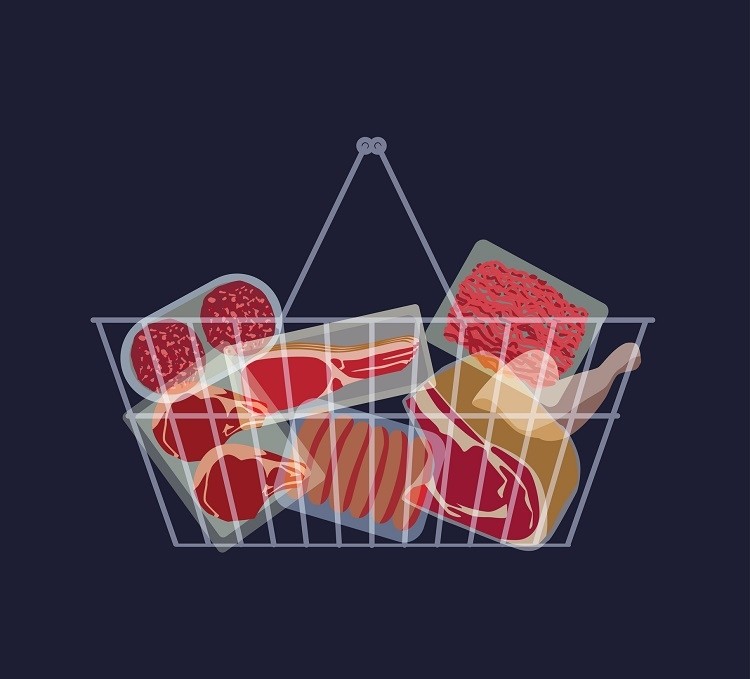Blending meat with alt protein: Does the hybrid category have a future?

To date, hybrid products have largely consisted of meat and plant protein blends in the format of burgers, mince or sausages. But with developments in food tech continuing apace, the hybrid category is likely to attract a greater range of ingredients including fungi, cultivated fat, and precision fermentation-derived dairy.
On a lot of levels, ranging from environmental sustainability to cost and functionality, hybrid products make sense. And actually, at FoodNavigator’s recent Positive Nutrition Summit, an overwhelming majority (85%) of attendees said they believe the hybrid category – covering the blending of plant, meat, fungi, and cellular agriculture-derived ingredients – has a future.
But the hybrid concept is polarising: where some see potential, others – including some meat-free innovators – do not. FoodNavigator investigates.
Hybrid to date: what’s working and what’s not?
Last year, the Good Food Institute (GFI) picked hybrid meat and dairy alternatives as a trend to watch within the protein alternative landscape. Specifically, the GFI observed the lines blurring between three alt protein pillars – plant-based, fermentation, and cultivated meat – and said it expected this trend to continue.
A quick look at R&D in the hybrid category suggests some food tech players are banking on this trend taking off. In Israel, food tech Wilk has developed a hybrid plant-based yoghurt product made with cultivated milk fat, Swedish mycoprotein maker Mycorena is co-developing blended meat and fungi products in collaboration with meat manufacturer Nybergs Deli and retailer ICA, and London-based start-up Hoxton Farms is cultivating animal fat for plant-based matrices.
Novel hybrid products are also attracting attention from researchers, who in Norway are blending plant proteins with some unlikely ingredients – including fish and poultry, algae, and insect larvae – and in Spain are playing with hybrid cheese analogues using dairy, faba beans and mealworms.

But the truth is, not many hybrid meat and plant-based protein offerings launched in recent years have survived to tell the tale. One example does include Applegate Farms’ Well Carved range, which launched in 2020. The line of products combining whole vegetables, legumes and grains and meat is still on the market.
Many more have come and gone. Meat processor Tyson Foods, for example, launched its blended meat and plant-based line in 2019 under its Raised & Rooted brand. In late 2020, the line was discontinued.
In the same year, BrewDog launched its Hybrid Burger into foodservice. The 50% Beyond Meat/50% beef product is no longer on the menu.
Listening to the market
Hybrid’s track record suggests something is not landing with consumers. But exactly which element of meat and alternative protein hybrids – be it taste, price, health, nutrition, marketing, animal welfare concerns or something else entirely – is up for debate.
Whatever the issue, Alan Iván Ramos, founder and CEO of fungi-based meat alternative start-up Libre Foods, suggests industry listen to these market learnings. For Ramos, they indicate meat and alternative protein hybrid makers are not finding the right audience.

This begs the question: is there a sizeable market of people wanting to consume hybrid meat/alternative protein products?
“If these [products] haven’t been working, then we have to really consider who it is we’re targeting. If it’s consumers who want to reduce their meat consumption, we have to [focus on] giving that [meat] experience as much as possible. If it’s plant-based or alternative protein enthusiasts who want to diversify their nutrition, then we have to be able to answer that challenge as well,” Ramos told delegates at the Positive Nutrition Summit.
“But for me, personally, I’d have a bit of trouble understanding who the target market for these kinds of products would be. We need to be listening to the data coming out of the market.”
Asking consumers what they want
In fact, industry can look turn to more than market results alone. A growing amount of research has sought to determine exactly what consumers think about hybrid meat products, with a focus on nutritional profile and willingness to buy.
Back in 2020, an EIT-funded project led by Dr Simona Grasso from the University of Reading investigated consumer perceptions across the UK, Spain and Denmark. Findings revealed consumer concerns that hybrid meat and plant-based proteins are over-processed and not as flavoursome.
“As expected, taste was one of the big concerns that people expressed regularly, but the biggest concern that we saw came from over-processing food,” explained Dr Grasso at the time. “Shoppers that we have spoken to expressed concern that over-processing would lead to the addition of additives and preservatives that gave the perception of being less healthy.”
More recently, in December last year, an online survey conducted by ProVeg International investigated whether consumers in the UK would likely buy or eat a hybrid product – but this time containing a blend of cultivated meat and plant-based ingredients.
According to the online survey, more than a third of UK consumers were, with another third saying they were unsure if they would eat or buy hybrid products. The survey found that consumer expectations in relation to hybrid plant-based/cultivated alternatives are fairly positive, with more than half of respondents expecting hybrids to be good for animals and the environment (57%), nutritious (54%), healthy, and safe (50%).
Is it all about marketing?
Not all query whether meat and plant hybrid products will struggle to find their target market.
Renske Janssen, project manager, protein technology, at NIZO Food Research in the Netherlands believes there is a ‘large group’ of consumers food makers can target with these offerings. But, she stressed at the Positive Nutrition Summit, ‘it’s a matter of communication’.
“Hybrid is a very confusing term,” she explained, added that the term ‘hybrid’ is more likely associated with cars that use more than one means of propulsion: a petrol or diesel engine and an electric motor. “It’s not related to food.
“I think a large part of consumers want to lower their meat intake, but they are not willing to sacrifice what they already eat.”
This is not the first time the marketing of hybrid products has been linked to low consumer uptake. Tyson Foods’ Raised & Rooted brand included a burger alternative made from Angus beef and isolated pea protein, which it displayed front-of-pack. Listing ‘isolated pea protein’ FOP could well offer a hint at why the product failed to hit the mark with consumers, according to ‘food futurist’ Tony Hunter.
“The products that are still going and being released are conventional meat with vegetables,” he said at the time. “The ones that failed: meat and plant proteins…It’s really important to realise and stress, that the way these products are presented to…the consumer is extremely important.”
An obvious benefit of working with animal proteins is the functionality they offer food formulation. Whether meat- or dairy-derived, animal proteins are ‘highly functional’, stressed NIZO’s Janssen. For the plant protein expert, this is another reason the hybrid category has high potential.
“There is a reason why it is difficult to exactly mimic dairy or meat, because the proteins are very functional. I think that if you combine them [with plant-based ingredients], you still increase the sustainability of foods, while making it an easier transition towards a more plant-based diet for consumers.”
Ethically, a ‘step too far’?
Belgium-based Paleo is only too aware of the functionality meat proteins offer, which is why the start-up is recreating animal proteins…without the animal.
Leveraging precision fermentation technology, Paleo is making the heme-binding protein myoglobin – an iron-rich protein found in animal muscle – which co-founder and CEO Hermes Sanctorum says is bio-identical to the real thing.
When added to a plant-based matrix, myoglobin improves its colour, taste, and nutritional value, we were told at the Positive Nutrition Summit. Paleo has been inundated with requests for its precision fermentation-derived myoglobin samples, from both small and large industry players, Sanctorum revealed.

But sample requests have not been coming from plant-based players alone. Paleo has also received requests for samples to include in meat/plant-based hybrid products. “From an ethical point of view, I say ‘no’,” the CEO told delegates.
“I understand the reasoning behind hybrid meat, because overall you decrease meat production and consumption, I see that.
“But sending out product to a company that will include it in a meat product is a step to far for me, personally.”
















